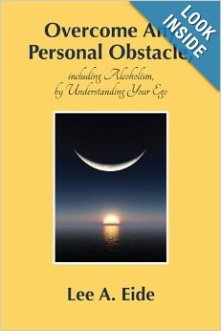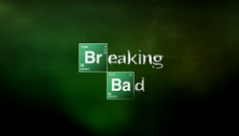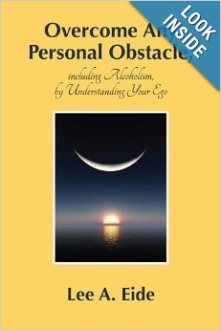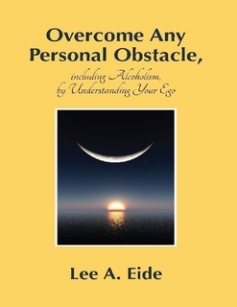The Five Aggregates – “Being” is experienced as:
1. Matter
2. Sensation
3. Perception
4. Mental Formation
5. Consciousness
— From Harold Ramis’ Five-Minute Buddhist Pocket Guide
In each of the five aggregates, change is inevitable and happens frequently. But to the egocentric person, they view the first, matter, as solid and unchanging. But as physicists have told us, beneath the seemingly solid and unchanging surface of physical reality, matter teems with activity. Atoms and molecules dance around in frenetic, subatomic patterns that would put participants in “Dancing With Stars” to shame.
That’s why, to me, a simple thing like a traffic light is so illuminating beyond merely lighiting up red, green or yellow (amber). When you look closely at a traffic light, you realize the color isn’t solid. The “solid” light consists of numerous smaller circles that stand so closely together that from a distance, it appears solid. To me, it’s a reminder that things often aren’t what they appear to be and that perceptions are open to interpretation.
To the person who views themselves as different and separate from the rest of the universe, their view of matter tends to extend to the other four aggregates, particularly to #3 – perception and #4 — mental formation.
In regards to #4, once an egocentric person forms an opinion and a mental position on a person, place, or situation, it becomes so solidly entrenched that it’s amazingly difficult for them to change their view of someone or something. While this can be convenient, the person doesn’t think twice about their view, it’s also extremely confining. Like being in jail. It’s nice because you don’t have to worry about going to work, cooking your own meals or paying bills, but it also keeps you from doing fun things like playing golf or going for a walk with your dog.
As for #3, the person’s perceptions are so weighed down with the need to use whatever or whomever they perceive as a means to make themselves look better, to justify their own actions, self-image, or beliefs, that it’s next to impossible for them to see the true nature of whatever they encounter. People see what they want to see is a saying brimming with the frothy tastes of truth.
The life of Jesus is a prime example. Christians buy into all the miracles portrayed in the Bible, including THEE miracle of all miracles, Jesus’ resurrection and subsequent ascension into heaven to join God the Father. Non-believers don’t accept those supposedly (from a Christian perspective) miraculous events because the biblical accounts of Jesus were written long (about a century) after Jesus died by people with an agenda: portray Jesus as the Son of God and a savior for all of humanity (well, all humans who believe in Jesus).
Sensation (#2) is an intriguing mixture of the physical body and the brain-mind. The origin of pain and pleasure is the physical body but the sensation doesn’t happen if there’s no a mind to perceive it. And sensation is largely subjective. People with chronic pain adjust to the presence of the unwanted intruder. They still experience the unpleasant sensation but their body and mind has woven the existence of pain into the fabric of that person’s consciousness: “Yes, I feel pain but I’m used to it and even though I take pills to ease my pain, it’s still there.” They accept it and by not resisting the pain, they make it easier to deal with its presence.
And now onto the mother lode of the Five Aggregates, consciousness.
Siddhartha Gautama, who is commonly known as the Buddha, meaning “the awakened one”. According to Buddhist tradition, the Buddha lived and taught in the eastern part of the Indian subcontinentsometime between the 6th and 4th centuriesBCE.[1]He is recognized by Buddhists as anawakenedor enlightened teacher who shared his insights to help sentient beingsend their sufferingthrough the elimination of ignoranceand cravingby way of understandingand the seeing of dependent origination, with the ultimate goal of attainment of the sublime state of nirvana. — Wikipedia
If the Buddha was awakened, then the majority of people living today are living in self-induced trance, similar to person who walks in their sleep. Their quality of consciousness is considerably less enjoyable and desirable than of the Buddha’s enlightened or awakened state. I was like that for over 50 years. I was so busy trying to satisfy the fictional “me” that supposedly existed somewhere either in my mind or “out there” in the cosmos. I thought there was a Lee Eide that was separate from all other sentient beings who I had to take care of by getting things (craving and attachment) and making me loook better and satisfying all my needs and urges. If that meant compromising the quality of life for other people, so be it.
In my mind, understanding the true nature of things changes the way one views each of the five aggregates. Matter, sensation, perception, mental formation and consciousness are all seen as fluctuating, temporal, fleeting and impermanent states of being. As such, one can’t possess anything and shouldn’t want to attach themselves to the illusionary idea that one can ever “have” anything. All life is experienced and then the life experience, whatever it is, goes away to give way to the next miraculous and marvelous experience.
That’s my story and I’m sticking to it.
Author’s Books:
“Overcome Any Personal Obstacle, Including Alcoholism, By Understanding Your Ego” – http://www.lulu.com/spotlight/leewriter
Book site of my novel, “Dead Man’s Plan”: http://bookstore.xlibris.com/Products/SKU-0060704049/Dead-Mans-Plan.aspx
Also available on Amazon.com.















